The When, Where, and Why of Safaris to Kenya
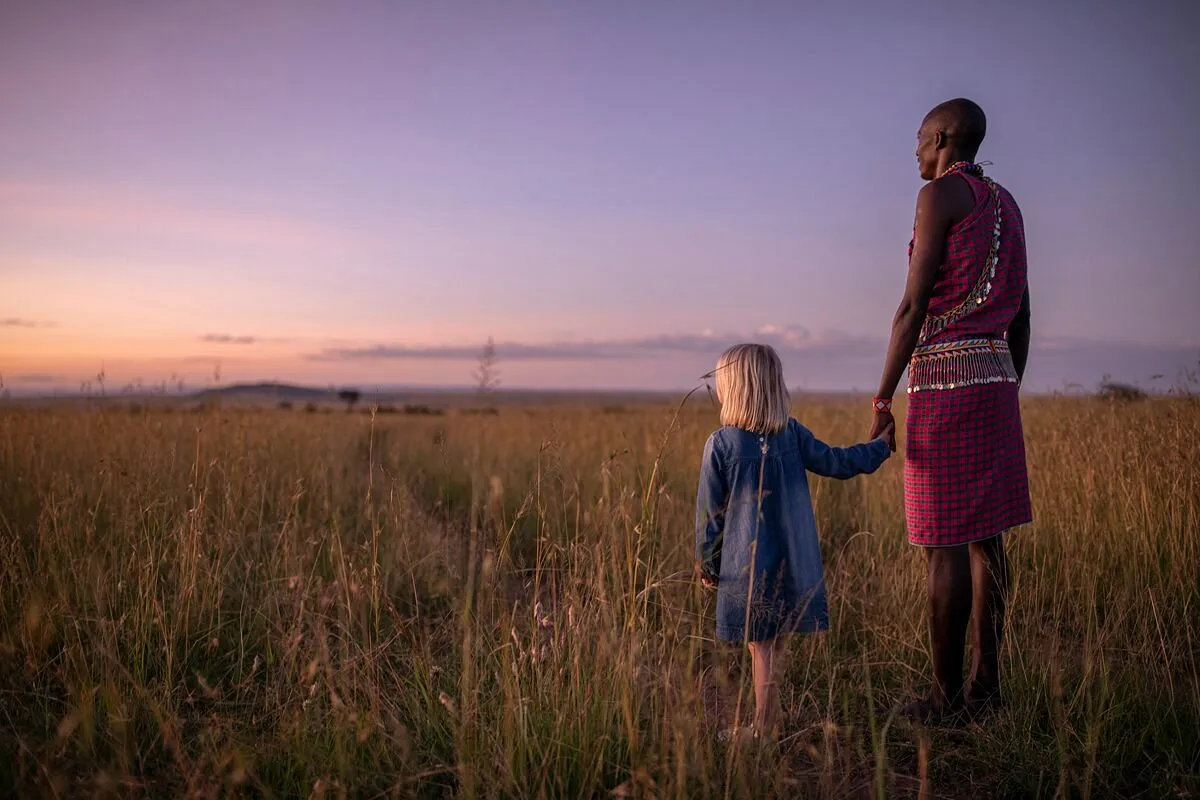
Why do safaris to Kenya remain the epitome of the ultimate wildlife adventure? Several reasons, the first being that the county is home to iconic events such as the Great Migration, which is hailed as the planet’s single-largest animal migration. The second is its wildlife for Kenya plays host to over 25,000 animal species. And third, its culture and intriguing history, which are captured beautifully by the country’s numerous museums.
In this guide, we demystify what lures adventurers to Kenya’s diverse ecosystems and seasons, ensuring your safari experience is nothing short of extraordinary. Discover the best times, locations, and unique opportunities that make Kenyan safaris a bucket-list journey.
Here’s Where to Contact Us to Start Planning your Kenya Safari
Call or WhatsApp us at +254-704-532-105 or send us an email at safarioffers@kenyasafariholidays.uk, safarioffers@ajkenyasafaris.com, or james@ajkenyasafaris.com
Here is a list of Some of Our Most Booked Kenya Safaris
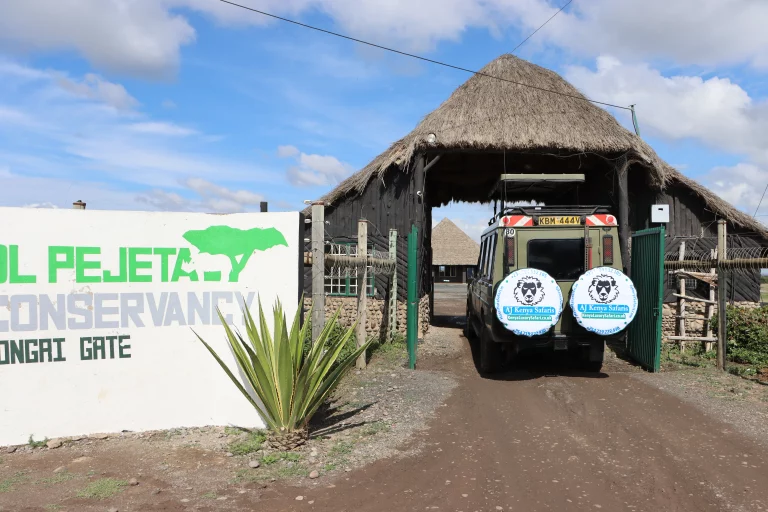
The Classic, 3-Day, 2-Night Masai Mara Safari
From £798
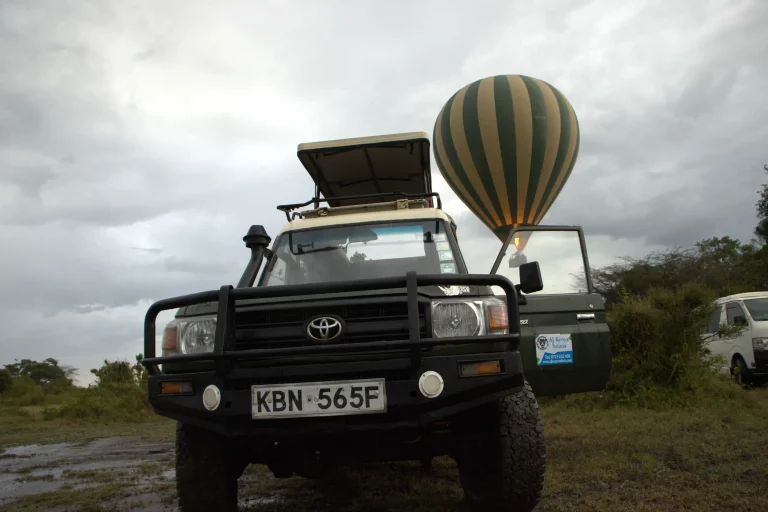
The Budget, 3-Day, 2-Night Jambo Masai Mara Safari
From £887
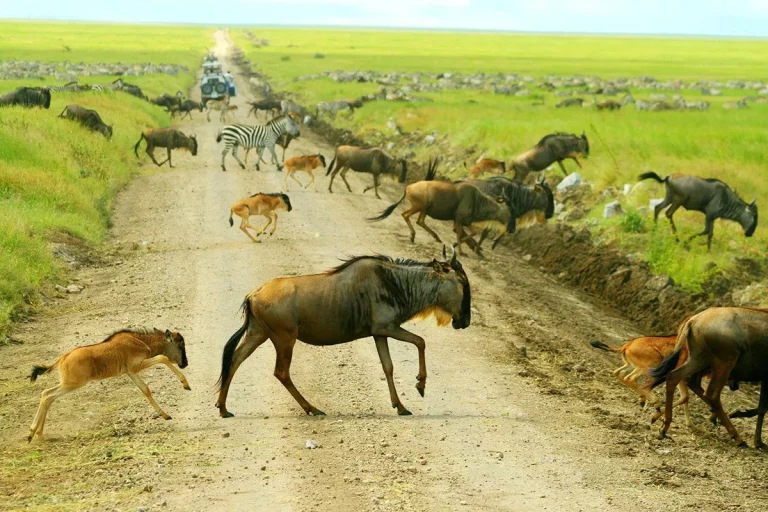
The Luxury, 4-Day, 3-Night Basecamp Masai Mara Safari
From £1233
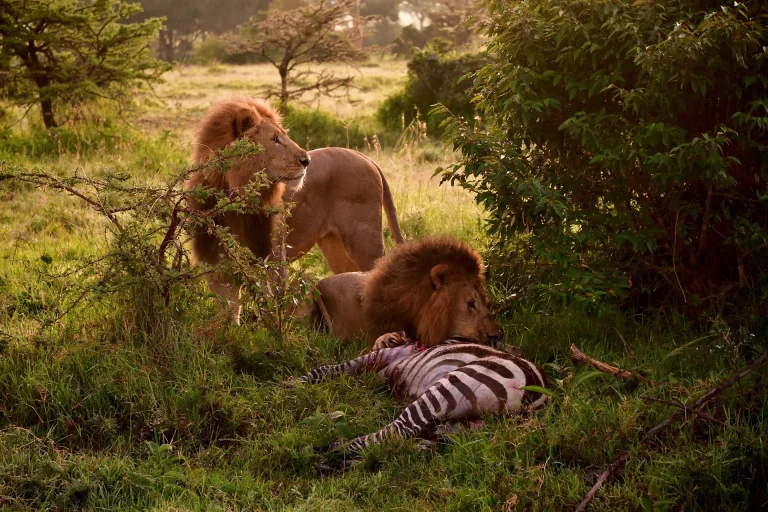
The Perfect, 4-Day, 3-Night Keekorok Lodge Safari
From £1111
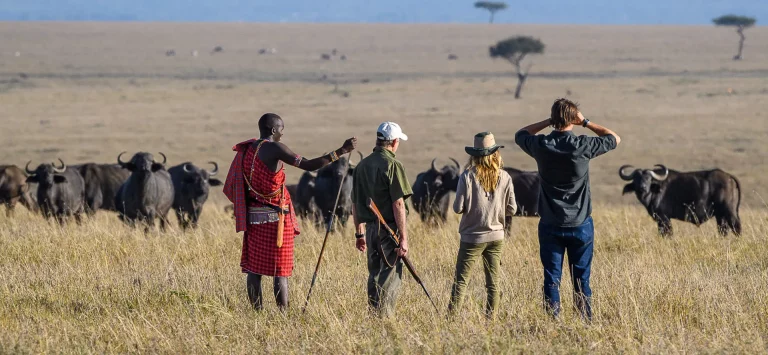
The Adventures, 4-Day, 3-Night Masai Mara Luxury Family Safari
From £1143
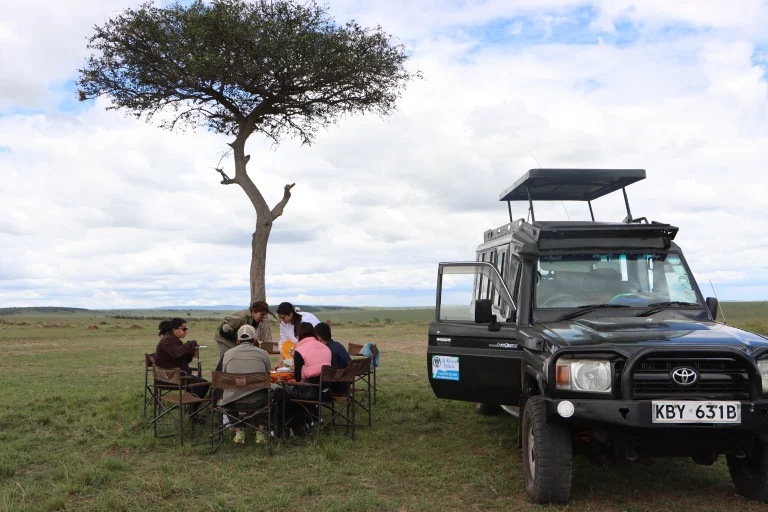
The Magnificent 8-Day, 7-Night Family Safari to Kenya
From £2462
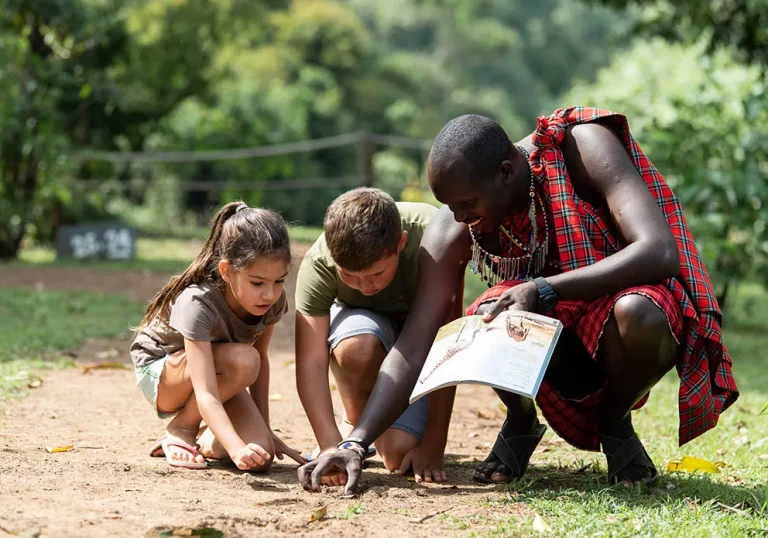
The Classic, 10-Day, 9-Night Family Safari in Kenya
£2495 Per Adult
£1310 Per Child
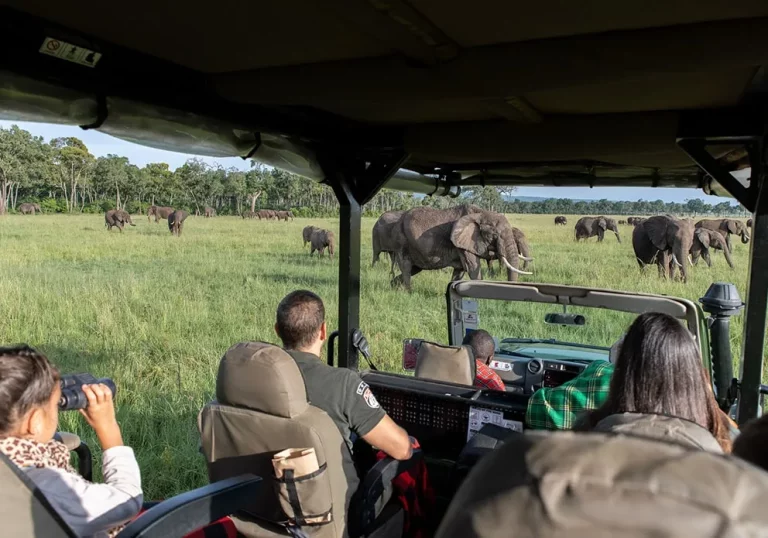
The Magical, 4-Day, 3-Night L. Nakuru & Masai Mara Safari
From £959
Executive Summary
- Kenya offers an array of safari tours for 2025/2026, with options for varied lengths, destinations, and experiences, including witnessing the Great Wildebeest Migration in the Masai Mara and exploring the diverse landscapes of Tsavo East and West.
- Flexibility and customization are key features of Kenyan safaris, with choices between private and group tours, tented camps and lodges, and the incorporation of unique activities such as hot air ballooning, walking safaris, and cultural encounters.
- Planning a safari in Kenya involves considering the best travel times, packing essentials, visa requirements, and participating in sustainable tourism practices that support wildlife conservation and the socio-economic development of local communities.
Top Kenya Safari Tours for 2025/2026
Kenya tours encompass a broad spectrum of ecological diversity, offering encounters with various wildlife across multiple parks such as Tsavo East and Tsavo West National Parks. Whether you’re an adventure-seeker, a wildlife lover, or a culture enthusiast, Kenya has a safari tour that fits your interests.
Here are some of the best destinations for Kenya safari tours.
Masai Mara National Reserve Safaris
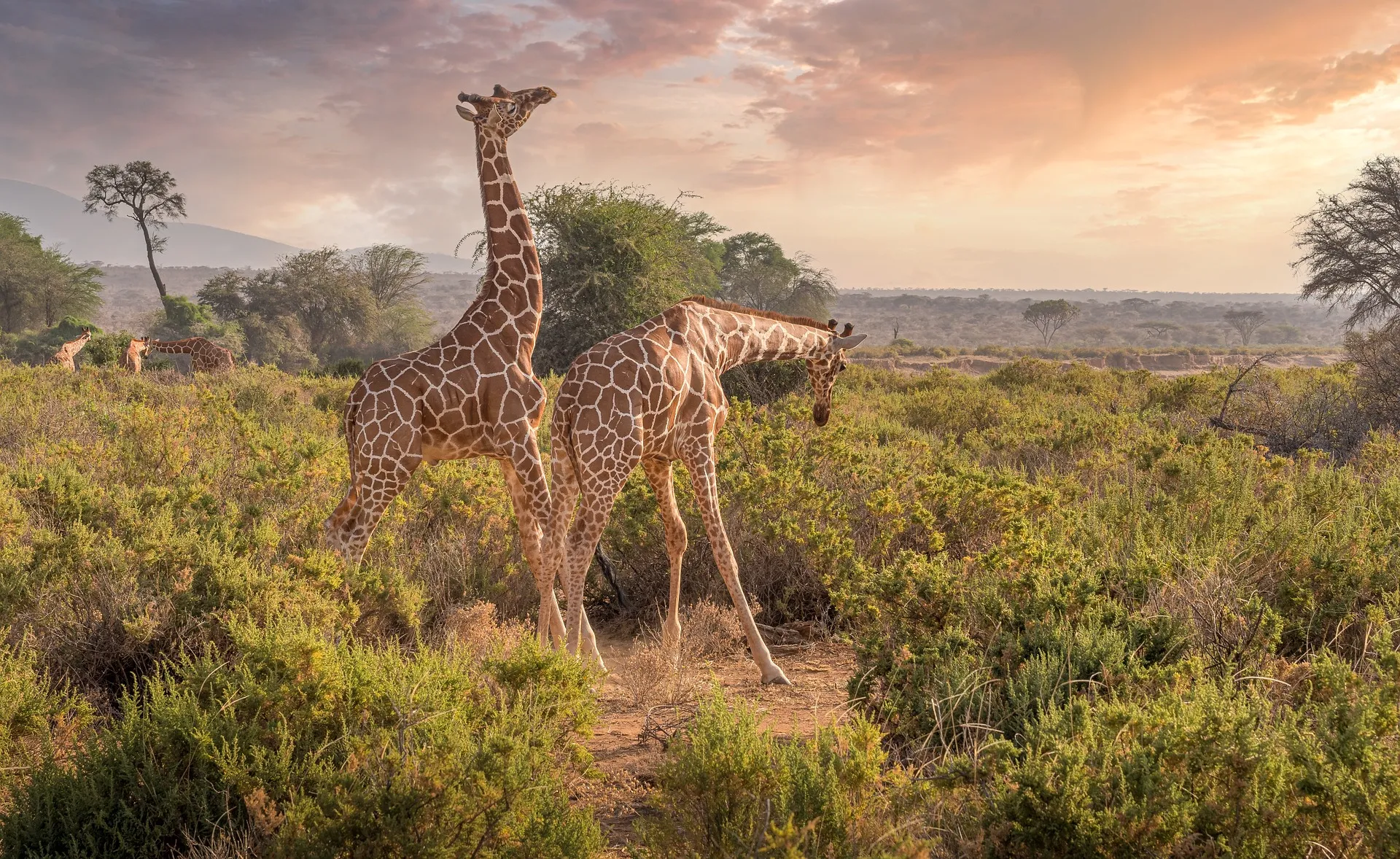
The Masai Mara National Reserve is a world-famous safari destination and a must-visit on any Kenyan safari. Although it’s well known for its amazing wildlife and incredibly beautiful landscapes, the Great Wildebeest Migration is by all means the star of the show.
This annual spectacle sees millions of wildebeests, zebras, and antelopes traverse the plains in what is known as the planet’s largest animal migration. The Great Migration, however, is not the only attraction here. The Masai Mara boasts over 470 bird species, making it an exceptional location for birdwatching throughout the year.
For visitors choosing to stay within the reserve, various campsites provide immersive wildlife experiences, offering an up-close view of the breathtaking sights and sounds of the Masai Mara.
Amboseli National Park Adventures
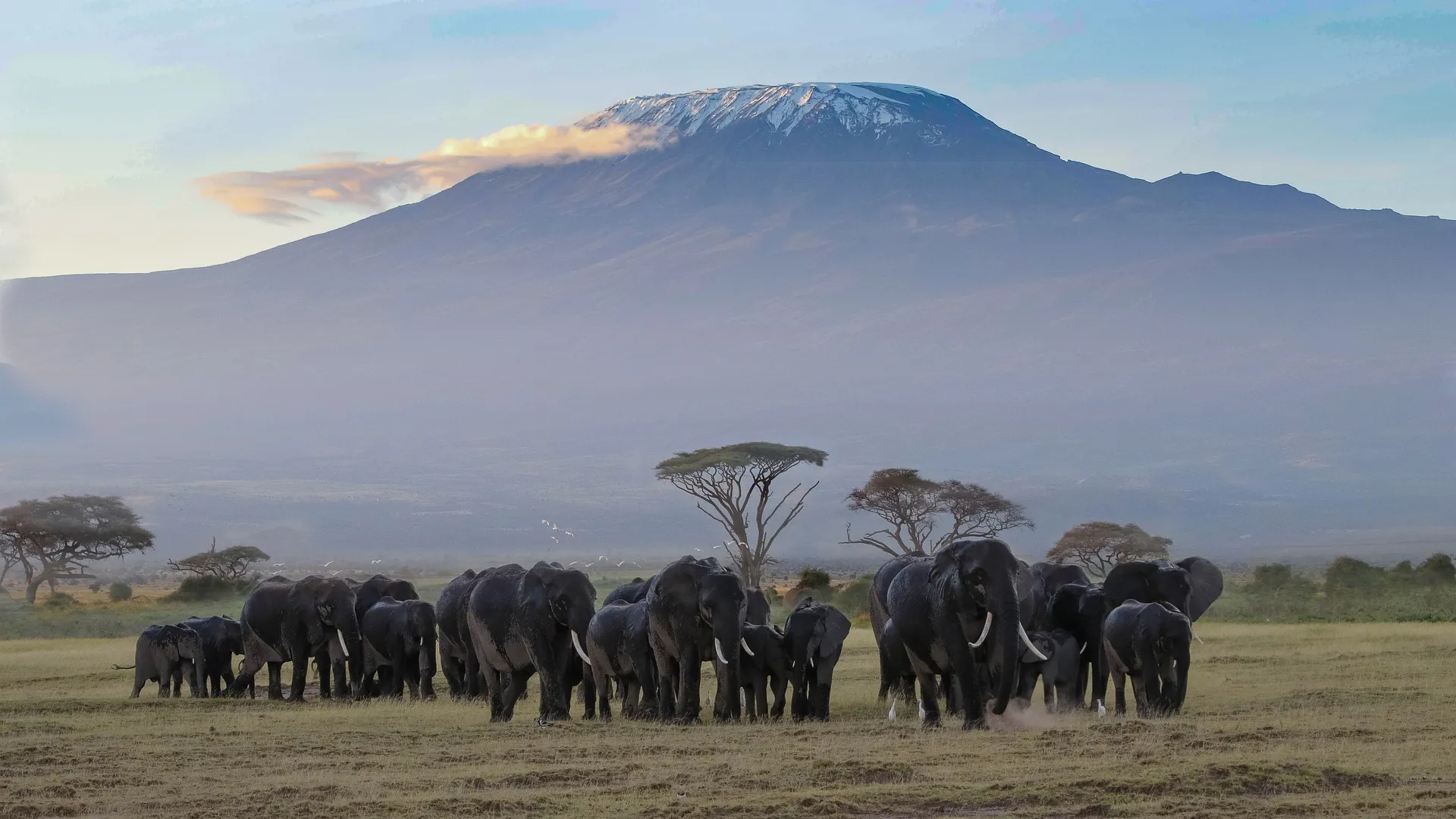
Next on our list is the Amboseli National Park, an incredibly beautiful park celebrated for its diverse wildlife and iconic elephant herds. The park is also home to an impressive variety of birds, offering fantastic bird-viewing opportunities.
Yes, the wildlife and birds are incredible but the most breathtaking aspect of Amboseli is hands down its backdrop which features incredible views of Mount Kilimanjaro. Now, imagine witnessing a herd of elephants roaming the plains with the snow-capped peak of Africa’s highest mountain in the distance. It’s a sight that captures the heart of every traveler and remains etched in their memory forever.
Tsavo East and West National Parks Expeditions
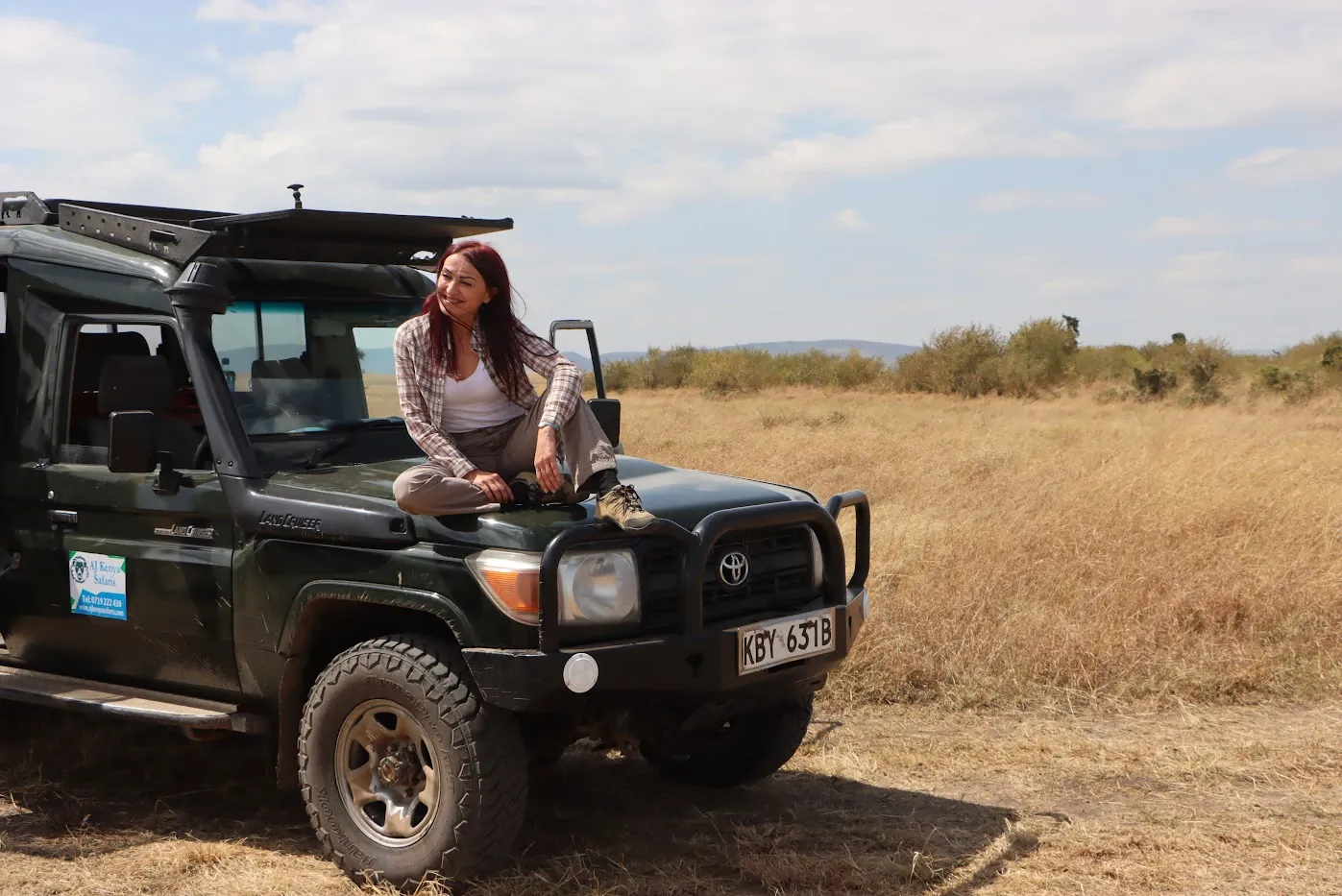
Experience the thrill of the wild in Tsavo East National Park and its counterpart, Tsavo West National Park. Known for their vast herds of elephants, with Tsavo East particularly recognized for the ‘Red Elephants’ covered in red dust, these parks are an adventurer’s paradise. Safari activities range from game drives that allow you to see an array of wildlife and explore historical sites such as old battlefields and the Lunatic Line railway, to visiting the mesmerizing Mzima Springs in Tsavo West, which features an underwater viewing chamber for observing hippos and aquatic life.
Conservation lovers can also visit the Ngulia Rhino Sanctuary in Tsavo West National Park, a dedicated conservation area that offers visitors the opportunity to see endangered rhinos, emphasizing the parks’ commitment to wildlife protection.
But these are Not the Only National Parks in Kenya. Other Must-try National Parks for your Kenya Safari Tours Include;
- Nairobi National Park, which is highly acclaimed for being the world’s only national park in a city
- Mount Kenya National Park, iconic for its lush grasslands, riverine forest, crystal clear rivers, and teeming wild animals
- Lake Naivasha National Park, home to Lake Naivasha, one of the most iconic rift valley lakes
- Samburu National Reserve, known for hosting the rare Samburu Five
- The Giraffe centre
- Lake Nakuru National Park
- Mombasa Marine National Park and Reserve which is perfect for your Mombasa safari
Luxury Kenya Safari Experiences
For those seeking to blend adventure with indulgence, a luxury Kenya safari tour offers the perfect balance. Luxury Kenya safaris can be enhanced through personalized services such as private safari vehicles for game drives, exclusive activities like horseback riding, and solo conservancy experiences, adding an extra layer of exclusivity to your safari. It’s all about basking in the wild luxury of Kenya, while simultaneously immersing yourself in the breathtaking beauty of its landscapes and wildlife.
Customizable Kenya Safari Packages
One of the best things about embarking on an East African safari is the freedom to customize your journey. The flexibility of customizing your safari allows you to extend your stay at specific wildlife reserves or incorporate unique activities such as hot air balloon safaris or cultural village visits, depending on your preferences. With the ability to tailor your safari to fit your interests, you can create an itinerary that’s perfect for you, your travel group, or your family.
Customizable safaris offer the following benefits:
- They cater to your preferences
- They contribute to the socio-economic development of local communities. By supporting local businesses and community-based projects, you’re promoting sustainable tourism. This helps to ensure the longevity of wildlife tourism in Kenya
Private vs. Group Safaris
A key decision in planning your dream safari in Kenya is choosing between a private or a group safari. Both have their advantages and can greatly shape your safari experience. Private safaris offer a tailored experience, catering to individual preferences. They also allow you to personalize travel dates, pacing, and activities.
On the other hand, group safaris offer economic advantages through shared costs, potentially larger budgets for activities, and the added value of companionship and the chance to meet new people. However, they may restrict individual flexibility by requiring consensus for activities and scheduling, potentially leading to less personal satisfaction. It’s all about what works best for you and your travel style.
Tented Camps vs. Safari Lodges
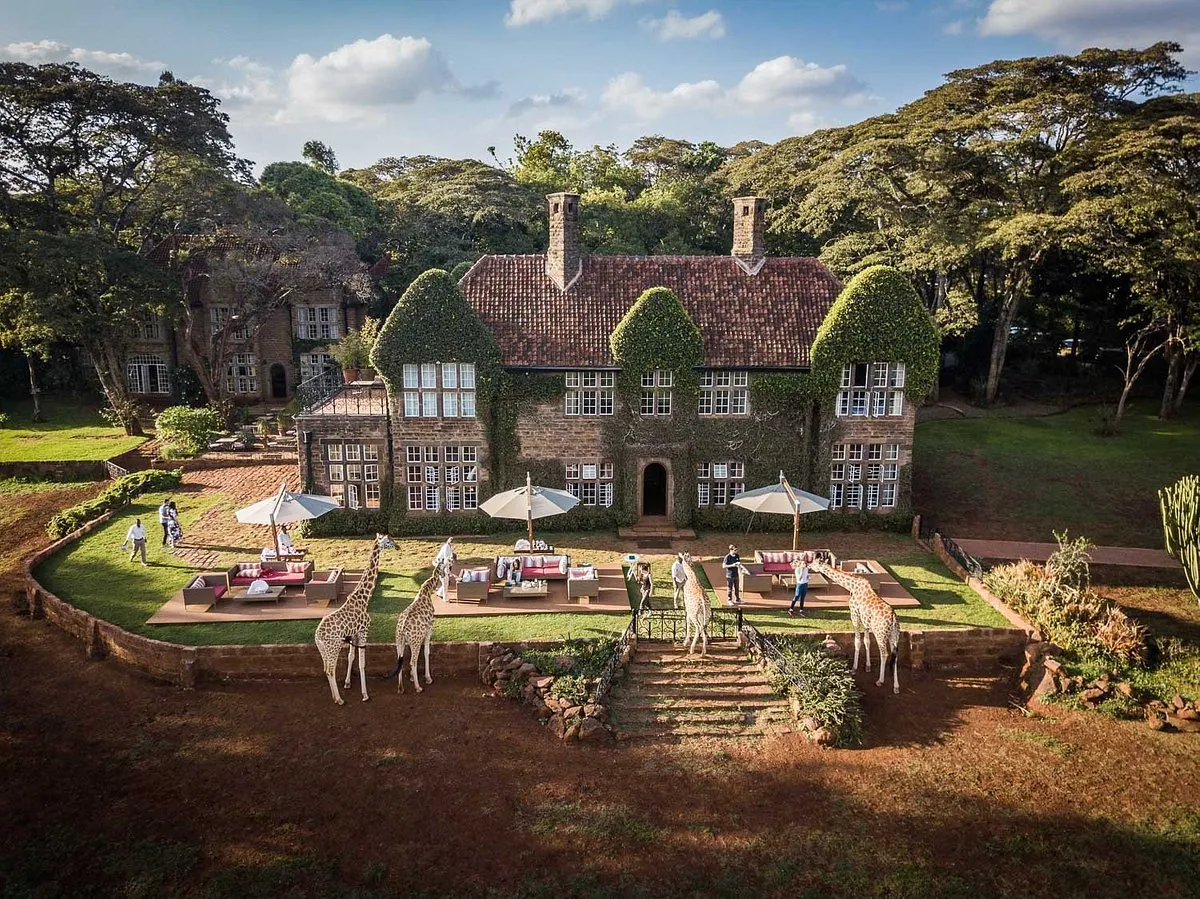
The choice of safari accommodation significantly influences your overall experience. In Kenya, you’ll find a range of options, but the choice often comes down to tented camps or safari lodges. Often located in secluded areas, tented camps provide an immersive experience in the wilderness with fewer guests and a more intimate atmosphere. The social environment in tented camps is typically intimate and personal, featuring communal dining and shared campfires.
Safari lodges, on the other hand, offer more traditional accommodation with solid structures. They offer additional services and amenities not typically found in tented camps and are generally better suited for families with children or elderly travelers. Ultimately, the choice between tented camps and safari lodges hinges on your personal preferences, with options varying from rustic charm to comfort and luxury.
Unique Activities and Experiences
In addition to traditional game drives, a variety of unique activities and experiences are available in Kenya to enrich your safari experience. Some of these include:
- Hot air ballooning over the Masai Mara
- Masai culture exploration in Masai Mara
- Horseback safaris among the wildlife in the Maasai Mara National Reserve
- Birding safaris in Amboseli National Park, which boasts over 400 bird species
- Off-road driving for adventurous wildlife viewing
- A walking safari in the Samburu, Masai Mara, or Nairobi National Park
Also, for the best Kenya holiday experience, you can combine your safari with a retreat to a beach holiday destination like Diani Beach or Manda Bay. Manda Bay provides a serene beach setting with activities such as deep-sea fishing and scuba diving. You could also personalize your safari to include photography, birdwatching, or cultural tours with tailored itineraries.
Hot Air Balloon Rides
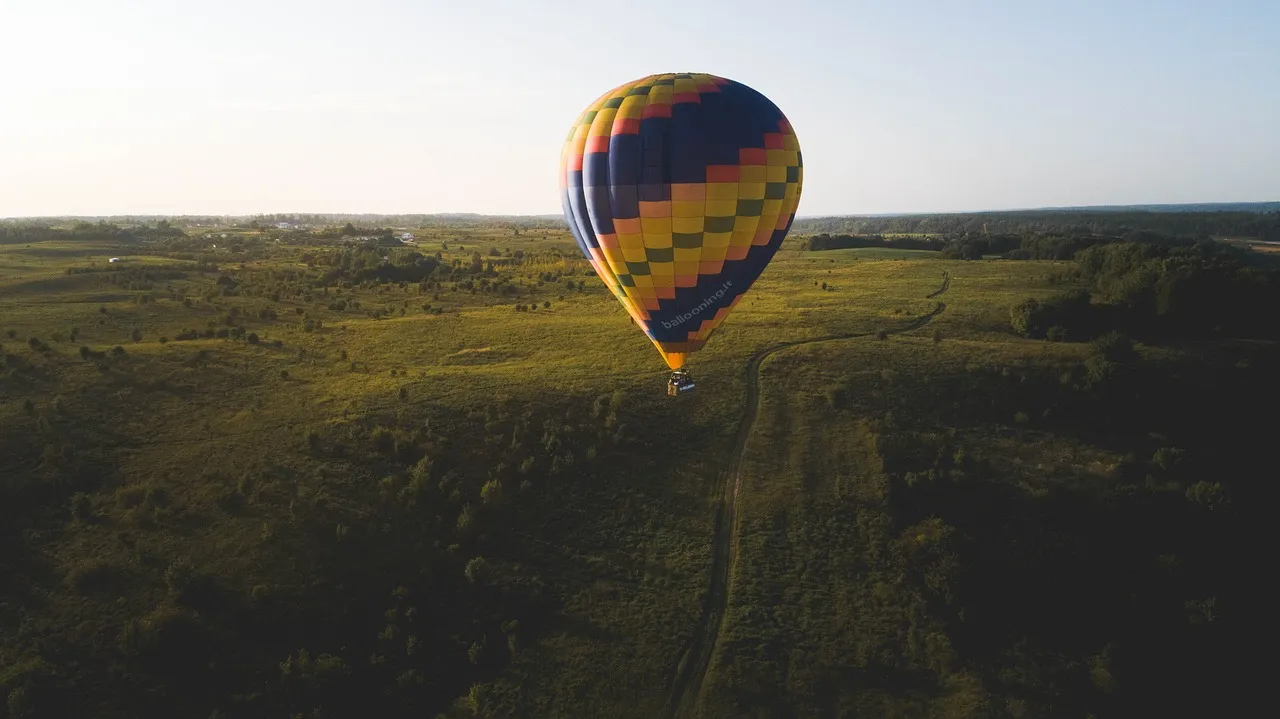
Hot air balloon safaris in the Maasai Mara National Reserve provide a stunning vantage point, offering a memorable way to view the landscapes and wildlife from the sky.
The hot air balloon rides offer:
- Altitudes of up to 15,000 feet which ensure a clear yet intimate view of the Kenyan landscape
- Calm African mornings with winds less than 15 mph, providing ideal conditions for hot air ballooning
- Sightings of a good number of the wildlife that resides in the Masai Mara
- Sightings of gorgeous Masai Mara landscapes and landmarks, from the Mara River to the Oloololo Escarpments and Talek River
Walking Safaris
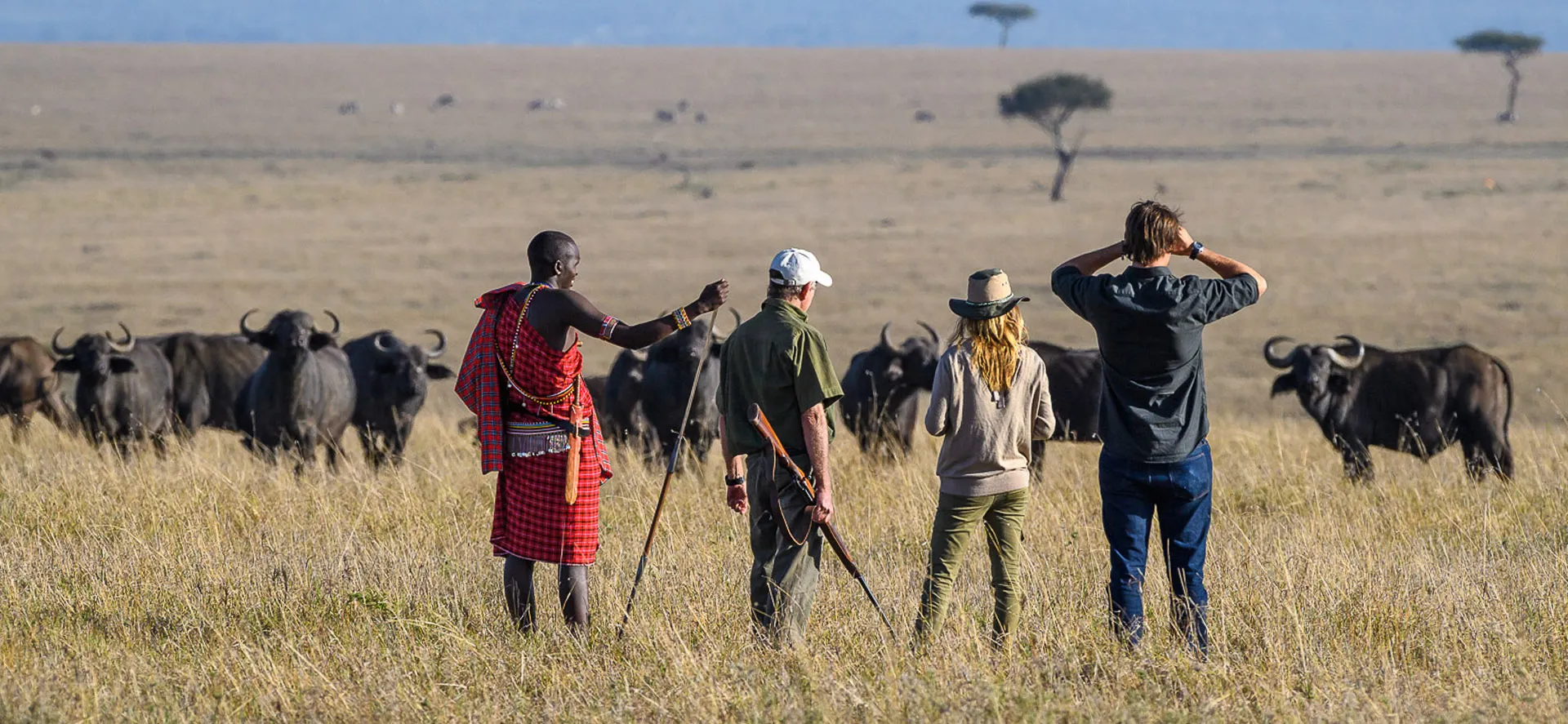
Walking safaris are gaining popularity in Kenya as tourists seek more immersive experiences. These safaris range from short bush walks when returning to a lodge to multi-day treks sleeping under the stars. Here are some options:
- Karisia Walking Safaris for camel-assisted journeys
- El Karama Lodge for family-friendly experiences
- Ol Malo and The Safari Series for walks in remote wilderness areas.
During walking safaris, visitors have the opportunity to track animals by footprints, interact with wildlife in their natural surroundings, and gain knowledge about animal habits and the natural world. Of course, safety is a top priority, with the presence of highly qualified guides and, often, an armed ranger to handle any emergencies that may arise.
Cultural Encounters
Engaging with local communities is a cornerstone of a Kenya safari, allowing visitors to gain insights into their revered traditions and customs. For instance, in Amboseli, safari adventurers can interact directly with the Maasai people, while visits to Maasai villages allow visitors to appreciate and participate in Maasai culture, including traditional dances and handicrafts.
Aside from enriching your travel experience, participating in authentic cultural experiences is a vital component of eco-conscious tourism, aiding cultural conservation while deepening your understanding of the local culture. From connecting with Samburu warriors to learning about local conservation efforts, cultural encounters are a heartwarming and enlightening part of your Kenya safari.
Best Time to Visit Kenya for a Safari
Deciding on the optimal time to explore Kenya is a critical component of trip planning. The best months for game viewing in Kenya are during the dry season from June to October when the bush is thinner, and animals gather around water sources. These months also offer the best weather for a safari, with fewer mosquitoes and sunny days with clear skies.
However, the green season from November to May is less crowded and offers thick, lush vegetation, with most animals giving birth to their young, providing unique wildlife viewing opportunities. Between November and April, bird enthusiasts are drawn to Kenya due to the migration of bird species. This season is particularly appealing to them. While rains during this season can sometimes affect travel, a dry spell between January and February also makes for an excellent time for a safari, with good conditions for wildlife viewing.
Tips for Planning Your Kenya Safari
The process of planning a Kenya safari holds its own excitement, comparable to the journey itself. It’s important to pack as lightly as possible and consider luggage restrictions and specific packing requirements based on the type of safari and time of year. Remember, practicality is key when packing for a safari – think comfortable clothing, a good pair of binoculars, and a sturdy pair of walking shoes.
Another essential aspect of planning your safari is understanding the visa requirements. As of January 2024, visitors to Kenya must apply for the Republic of Kenya Electronic Travel Authorization (eTA) at least 7 working days in advance of travel. The eTA allows for a single entry and requires confirmed booking details as part of the application process. By getting these essentials right, you can focus on the exciting parts of your trip – the wildlife, the landscapes, and the unforgettable experiences.
Conservation Efforts and Sustainable Tourism in Kenya
Embarking on a Kenya safari presents an opportunity to acknowledge the significance of sustainable tourism. Organizations like Tsavo Trust, The African Wildlife Foundation, and others are dedicated to protecting wildlife and their natural habitats in Kenya while engaging local communities. By choosing eco-friendly accommodations and engaging in educational initiatives, you can support these efforts and contribute to the longevity of wildlife tourism in Kenya.
Also, Safari operators in Kenya are increasingly integrating conservation and community projects into their experiences. For instance, visits to the Maasai villages not only allow you to appreciate and participate in Maasai culture but also inform you about local conservation efforts and sustainable tourism practices. By choosing to participate in such experiences, you become part of the solution, contributing to cultural conservation and the socio-economic development of local communities.
Summary
Embarking on a safari to Kenya is more than just a holiday; it’s an adventure that leaves an indelible imprint on your heart. From the vast plains of the Masai Mara to the majestic herds of elephants in Amboseli, Kenya offers an unparalleled safari experience. As you plan your safari, remember to consider the best time to visit, the type of safari that suits you, and the unique activities you wish to include. And remember, every choice you make can contribute to the conservation of this beautiful land and its incredible wildlife. After all, the magic of Kenya is a treasure to be preserved for generations to come.
Frequently Asked Questions
How much is a safari trip to Kenya?
A safari trip to Kenya can cost anywhere from around $200 per person, per day for basic accommodations, to $600 to $1,000 per person, per day for top-tier luxury lodges. Prices may vary based on the level of accommodations and services chosen.
How many safaris are there in Kenya?
Kenya has 54 national parks and game reserves, making it an ideal destination for safaris. With such a wide range of options, there are plenty of opportunities to experience the country’s incredible wildlife.
What is the best time to go on safari in Kenya?
The best time to go on safari in Kenya is between June and October, with early September offering the chance to witness the famous wildebeest migration across the Masai Mara. Kenya’s wildlife is abundant year-round, so any visit during this period would be fantastic.
What are the benefits of private vs group safaris?
Private safaris provide a personalized experience tailored to individual preferences, while group safaris offer economic advantages through shared costs and the value of companionship. Both options have their unique benefits to consider.
What unique activities can I include in my Kenya safari?
Consider including hot air balloon rides, walking safaris, and cultural encounters with local communities to make your Kenya safari experience unique and memorable. These activities will provide you with a diverse and authentic perspective of the region.
Kenya or Tanzania which is better for a safari?
The Kenya-Tanzania safari debate has been ongoing for decades now. Because these countries are in the same region (East Africa) they have the same weather and wildlife varieties. But there are little subtle differences that differentiate these two countries.
Tanzania, due to its large national parks, is perfect for longer safari tours. The disadvantage with Tanzania is that park entry fees are more expensive and the infrastructure is less developed than in Kenya.
Kenya presents a variety of accommodations and flight options, so it’s easier to get something in your budget range. Kenya is also safer and more developed.
